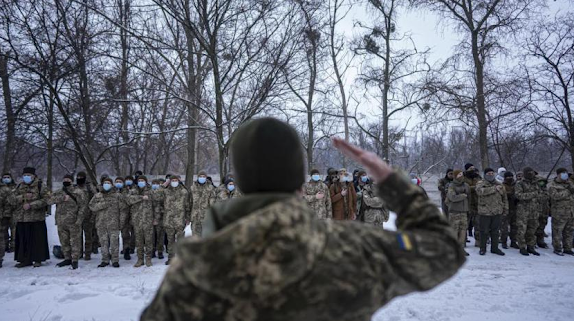The Kremlin reacted to the deployment of 3,000 US troops near Ukraine,
namely in Romania and Poland. Russia feels threatened by America's move.
Speaking to CNN, Russian President Vladimir Putin's spokesman, Dmitry
Peskov, responded to Pentagon spokesman John Kirby's announcement that
President Joe Biden had approved the decision to deploy thousands of
American troops to Eastern Europe.
Kirby said the US decision was in response to Russia's continued military
buildup in its western region bordering Ukraine and in Belarus.
"The current situation demands that we strengthen our deterrence and defense
stance on NATO's eastern flank," Kirby said, referring to Romania and
Poland.
“President Biden has made clear that the United States will respond to
growing threats to the security and stability of Europe. Our commitment to
NATO Article 5 and collective defense remains steadfast.”
However, according to Peskov, the Pentagon's announcement further lends
traction to the idea that Russia is under threat from the US-led NATO
military bloc. "The de facto US continues to increase tensions in Europe,"
he said.
"The deployment of thousands of US troops is the best evidence that we, as
Russians, have clear reason to be concerned," he said, as quoted by Russia
Today, Friday (4/2/2022).
The Kremlin spokesman's comments come as Moscow remains in consultation with
the US and NATO on a possible agreement on European security guarantees.
Last year, Russia publicly released two treaties it had proposed to the US
and NATO.
The draft document includes a long list of security guarantees aimed at
increasing stability in Europe, such as limiting the deployment of missiles
near Russia's borders and the withdrawal of NATO alliance troops in Eastern
Europe to positions such as 1997.
Moscow also demands that NATO end its eastward expansion. Last month, the US
sent back an official response to Russia's demands, which are currently
undergoing an assessment by the Kremlin.
While Washington has been open to deals on arms control and increasing
transparency of troop movements, it has steadfastly rejected suggestions of
ending the expansion of NATO's military bloc.



